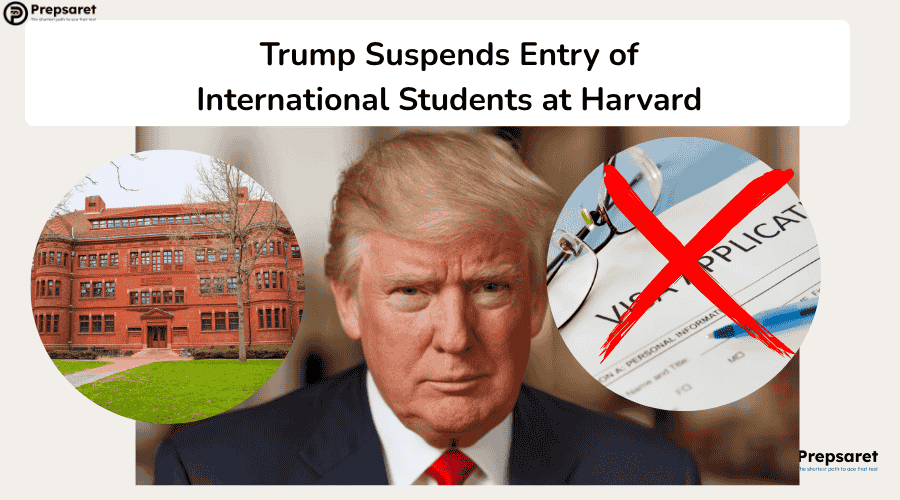Key points:
-
President Trump signed a proclamation suspending entry of most new international students at Harvard University for six months, citing security threats and foreign ties.
-
The directive authorizes visa reviews for current international students at Harvard and may be extended beyond its initial term.
-
Harvard officials call the move retaliatory and a violation of free speech, promising to defend their international student population.
In a sweeping move that has reignited tensions between the White House and one of the nation’s most prominent academic institutions, President Donald Trump on Wednesday signed a proclamation suspending the entry of foreign nationals seeking to study at Harvard University.
The order, which lasts for an initial six months, also instructs the U.S. State Department to consider revoking the visas of certain current international students enrolled at the Ivy League school.
The administration justified the suspension on grounds of national security, citing Harvard’s alleged connections to foreign governments—particularly China—as well as concerns over criminal activity and insufficient reporting related to foreign students.
The proclamation states that “Harvard’s conduct has rendered it an unsuitable destination for foreign students and researchers,” and accuses the university of failing to adequately address antisemitism and of prioritizing ideological agendas such as diversity and inclusion.
Harvard Pushes Back, Alleging Political Retaliation
Harvard swiftly condemned the directive, calling it “yet another illegal retaliatory step taken by the Administration in violation of Harvard’s First Amendment rights.” The university pledged to stand by its international student community, which comprises approximately 27% of its student body.
The proclamation arrives just days after a federal judge in Boston announced plans to block the Trump administration’s prior attempt to revoke Harvard’s Student and Exchange Visitor Program (SEVP) certification. That action would have barred the university from enrolling international students altogether.
Although the Department of Homeland Security later pivoted to pursue a lengthier administrative process, Trump’s latest order has again raised uncertainty for current and prospective international students.
The administration has also taken other steps to exert pressure on Harvard, including freezing federal funding and threatening to revoke its tax-exempt status. According to Harvard officials and legal filings, these actions are part of a broader effort by the government to force ideological and governance changes within the university.
Other Recommended Top Headlines
- Trump Considers Redirecting $3 Billion in Harvard Grants to US Trade Schools
- Does Harvard Accept GED
- Fastest Way To earn a GED Diploma
Implications for Students and the Academic Community
For many international students, the news has caused anxiety and disruption. One Chinese student accepted into a Harvard master’s program said the move was “unfair and politically driven,” expressing fear about what lies ahead. The order applies only to Harvard and does not impact foreign nationals enrolling at other U.S. institutions through SEVP.
Under the terms of the proclamation, the Attorney General and the Secretary of Homeland Security are expected to evaluate its impact and report back within 90 days, possibly laying the groundwork for a longer-term ban.
As the legal and political battle unfolds, Harvard is preparing for further court action and reaffirming its stance: “We will continue to protect our international students.” The broader academic world is watching closely, as the outcome may have lasting effects on how U.S. universities and colleges engage with the global student community.

